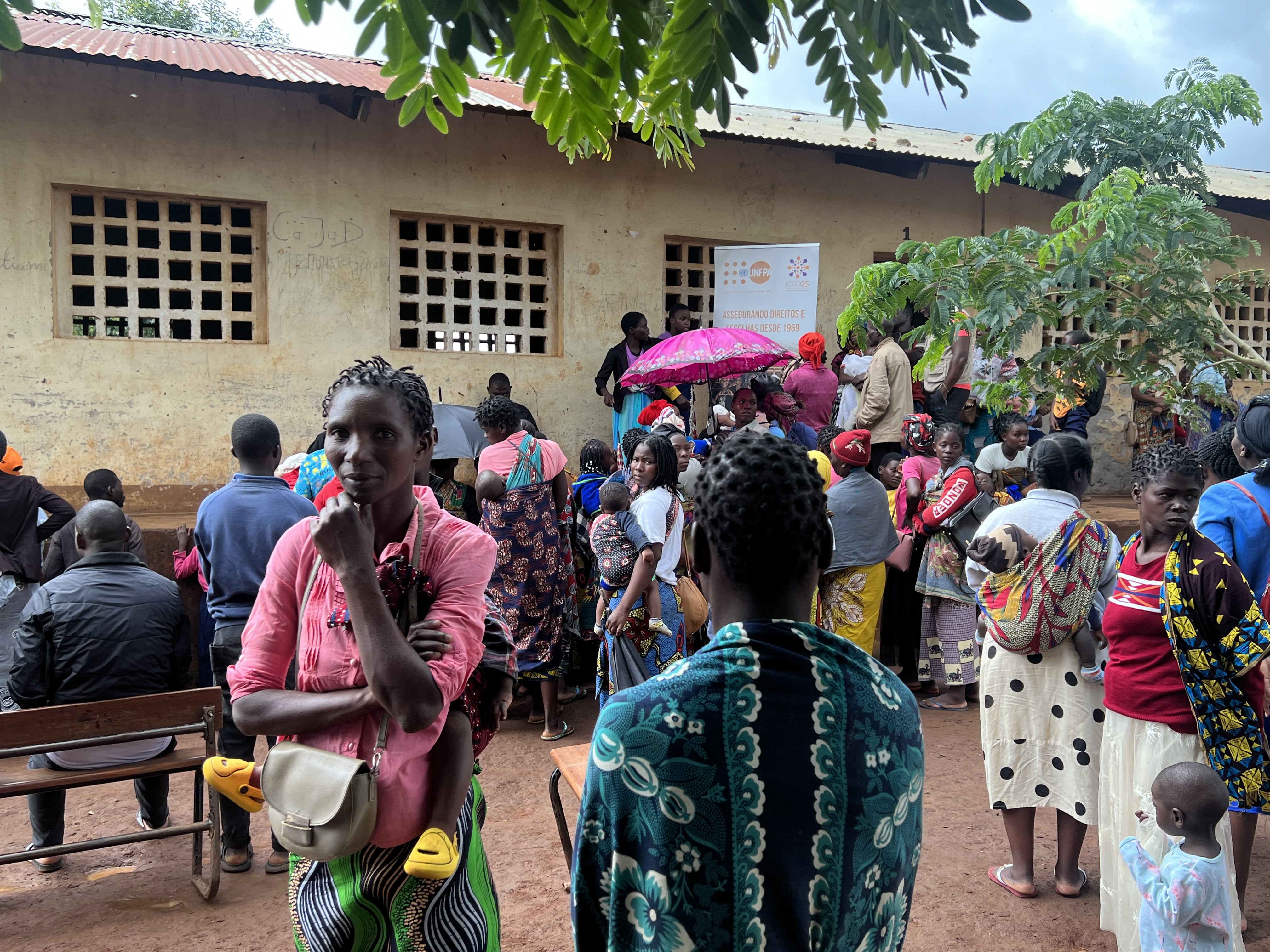Civil registration is a human right and a powerful protection tool for the entire population, particularly girls. In Mozambique, UNFPA supports the government in promoting civil registration campaigns and integrating services to prevent and respond to cases of gender-based violence and child marriage.
Zambézia, Mozambique - Marina wakes up before dawn to start a 10-kilometre journey to the 25 de Setembro school in the district of Milange, Zambézia province. She learnt that a civil registration brigade would be at the school that day. She arrives at the school at three in the morning and wants to register her youngest daughter.
"I had my first child when I was thirteen, and before I was 18, I had two more. Today, I'm the mother of five children," Marina shares, adding that registering her children is vital "so that they can do things in the future, especially go to school".
In Mozambique, four out of every ten girls are in a situation of child marriage before the age of 17, with 25 per cent of all national births occurring in girls aged between 15 and 19 (Census 2017). It is often during these campaigns that new cases of child marriage and teenage pregnancies are flagged.

The civil registration brigade that will welcome Marina today is part of an effort to strengthen the data collected at the provincial level for Mozambique's Civil Registration and Vital Statistics System (CRVS). With the support of the United Kingdom Government, and in partnership with the Ministry of Justice and the civil society organisation Associação Coalizão da Juventude Moçambicana, UNFPA is providing support to the institutions of the National Statistics System to generate, monitor and track data and evidence on gender-based violence and child marriage during the registration campaigns.
"The relevance of civil registration is indisputable. The population can access health, education, and all other basic services only with their legal documents. Integrating an awareness-raising component into these campaigns on gender-based violence and child marriage is fundamental, as is following up on reported cases. It is often during these campaigns that new cases of child marriage and premature births are flagged," explains Elisa Raimundo, a Coalizão mentor.
Birth registration, considered a fundamental human right, is an essential tool for preventing and combating early unions, establishing the age of individuals, and guaranteeing their protection, especially that of girls, against child marriage.
"Registration is important for everybody, but it works as a defence tool for girls! Through birth registration, proof of cases of child marriage and teenage pregnancies can be provided. These cases can be properly referred to the courts through the official identification of the minor. Registering a girl means protecting her from the different types of violence to which she may be exposed," explains Manuela, another Coalizão mentor involved in the sensitization campaign.
With her birth certificate, Marina's daughter, in a few years, is guaranteed access to school, the ability to avoid child marriage, and access to family planning and justice services. This guarantee to the right to civil registration for Marina's daughter is also the guarantee of a future in which the chances of realising her full potential are increased.
"I've done what I wanted," Marina shares after registering her daughter. “My daughter will be able to go to school, work, and all the things she's entitled to."


